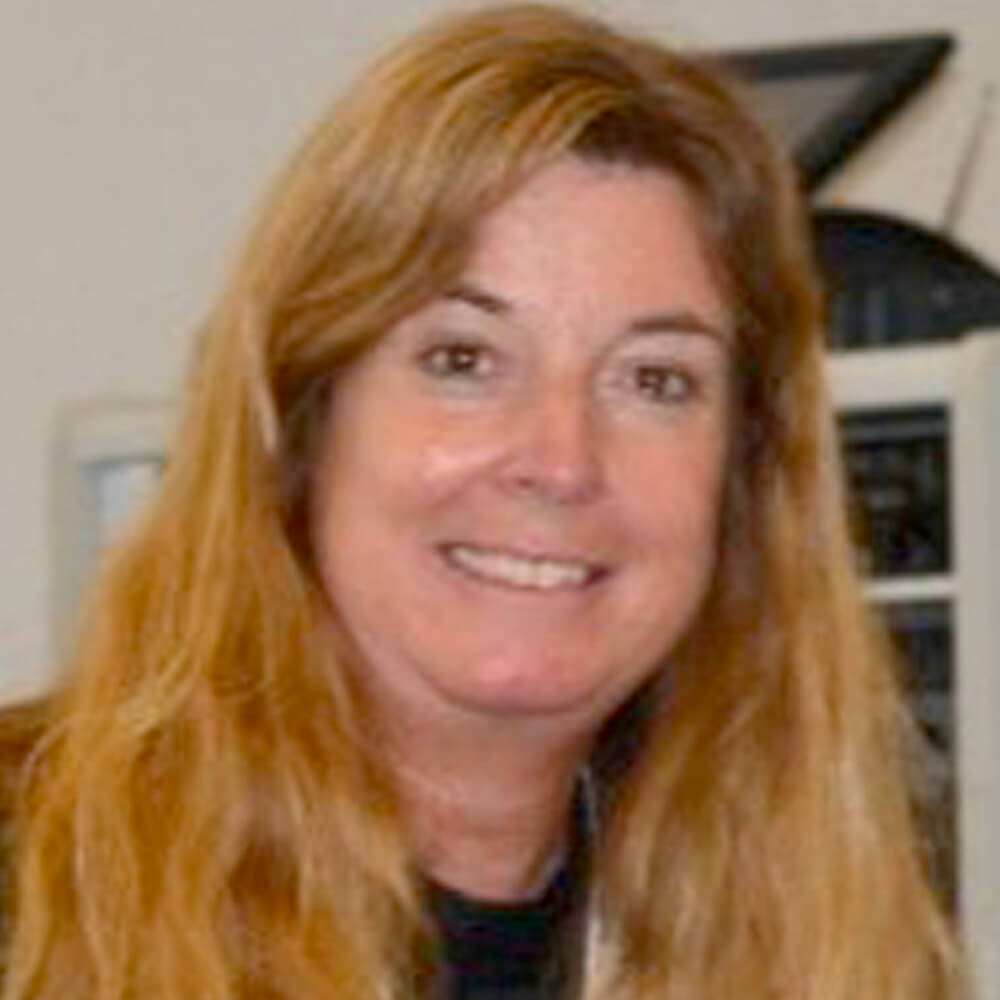
Research
The NPKUA is committed to engaging with and investing in research to improve the lives of individuals with PKU. We frequently interact with the top academic researchers and industry partners to stay updated on the emerging treatments, management techniques, and work towards an eventual cure for PKU. The NPKUA prioritizes investing in research through the NPKUA grant program to fund novel science, the PKU Patient Registry to provide data insights from the community, and the scientific conference held each year to bring together researchers, clinicians, and industry partners. Learn more about our many research initiatives below.



Research Grants
The NPKUA grant program aims to advance the science of PKU by funding the most promising research that will lead to enhanced management, new therapeutic approaches, and ultimately a cure to improve the lives of individuals with PKU. To date, we have provided over $5 million to fund over 75 grant projects. Investing in and supporting PKU research is a critical component of our work to improve our understanding of the condition, develop new treatments to optimize management and outcomes, and eventually find a cure. Learn about previously approved grants.
If you are a researcher interested in applying for an NPKUA grant, applications typically open in the spring and are due in June of each year. Awarded grant projects begin in the fall and are typically funded for 1 year. Eligible applicants must have an advanced (i.e. PhD, MD, SW, GC, RD) or equivalent degree(s) and hold a full-time position at an established clinical/academic/research institution. If you are interested in applying, please see our Call for 2024 Research Proposals or email the NPKUA Director of Research Development, Elaina Jurecki, at elaina@npkua.org.
Scientific Advisory Board
The Scientific Advisory Board (SAB) is a selected group of professionals who are knowledgeable in genetically inherited metabolic disorders, including PKU, and have demonstrated clinical and/or scientific expertise in PKU. They offer expertise on scientific developments to provide insights on the needs of people living with PKU to ensure that our policies, research, grants, marketing, communications, and publications meet the highest standards of scientific rigor and accuracy.
SAB participates in defining the NPKUA research priorities, identifying the research focus for the grant program, contributing extensive input and recommendations regarding submitted grant proposals, and providing recommendations regarding NPKUA’s scientific endeavors to the Board of Directors.

Kirsten Ahring
Ph.D., R.D.

Shawn Christ
Ph.D.

Cary Harding
M.D., FACMG

Neil James

Uta Lichter-Konecki
M.D., Ph.D.

Erin Macleod
Ph.D., R.D., L.D.

Markey McNutt II
MD, PhD, FACMG

J. Lawrence Merritt, II
MD

Denise M. Ney
Ph.D., R.D.

Natalie Owen
CRNP, MSN

Christineh N. Sarkissian
Ph.D.

Soo Shim
MBA, M.S., LCSW

Francjan van Spronsen
M.D., Ph.D.

Robert Altshuler
Ph.D.

Kristen Skvorak
Ph.D.
"*" indicates required fields
Kirsten Ahring, Ph.D., R.D.
Clinical Dietician
Copenhagen University Hospital
Dr. Ahring currently serves as a clinical dietician in Human Nutrition at Copenhagen University Hospital and previously was a clinical dietician in Human Nutrition at Kennedy Centre. She has over twenty-five years of experience with PKU, including patient counseling, teaching future metabolic professionals, participating in clinical research projects, representing the PKU parent’s organization of Denmark in the European Society of PKU (ESPKU), and serving as the contact person for the late-diagnosed PKU patients in Denmark. Dr. Ahring has also participated in numerous research projects, including her master’s and Ph.D. theses which both focused on PKU, and received over 40 international peer reviewed publications.
Shawn Christ, Ph.D.
Associate Professor, Department of Psychological Sciences
University of Missouri
Shawn Christ, PhD, is an Associate Professor in the Department of Psychological Sciences, MRI Director at the Cognitive Neuroscience Systems (CNS) Core Facility, and adjunct professor at the Thompson Center for Autism and Neurodevelopmental Disorders at the University of Missouri. Dr. Christ has a strong record of publication (over 70 peer reviewed papers) in the area of pediatric neuropsychology. Dr. Christ has a history of extensive internally and externally funded research support (e.g., National Institutes of Health, Department of Defense, NPKUA, BioMarin Pharmaceutical Inc., Autism Speaks Foundation). Research in Dr. Christ’s laboratory centers on the development of cognitive abilities in children with PKU and other neurodevelopmental disorders (e.g., autism) as well as the neurocognitive changes associated with pharmaceutical and behavioral interventions in these populations. Some of Dr. Christ’s most recent work has focused on behavioral and brain improvements associated with treatment in individuals with PKU.
Cary Harding, M.D., FACMG
Professor of Molecular and Medical Genetics, and Pediatrics
Oregon Health & Science University
Dr. Harding is Professor of Molecular and Medical Genetics and Pediatrics at Oregon Health & Science University (OHSU). He received his medical degree from the University of Washington followed by pediatric and medical genetics training at the University of Wisconsin-Madison. He is board certified in Clinical Genetics and Clinical Biochemical Genetics. Dr. Harding is a founding fellow of the American College of Medical Genetics and Genomics (ACMGG) and a member of the American Society for Cell and Gene Therapy (ASGCT) and Society for the Study of Inborn Errors of Metabolism (SSIEM). He is the treasurer of the Society for Inherited Metabolic Disorders (SIMD). He is an attending physician in the metabolic clinic at Doernbecher Children’s Hospital and the Medical Director of the Biochemical Genetics Lab at OHSU. He is also a clinical consultant to the Northwest Regional Newborn Screening Program. He serves as co-chair of the Scientific Advisory Board for the National PKU Alliance (NPKUA) and as the Project Director for the PHEFREE Rare Disorders Consortium. Dr. Harding’s basic and clinical research programs are focused upon the development of novel therapies, including gene and cell therapies, for inborn errors of metabolism.
Neil James,
Strategy & Logistics Co-Chair, NPKUA
VP, Patient Diagnosis Programs
Ultragenyx
Neil James is an experienced leader in the pharmaceutical and biotechnology industry, with over 30 years of global commercial experience in a diverse range of indications. Neil joined BioMarin in 2010 where he led PKU commercialization, including Kuvan, the Phe Monitor program and early-stage development work for Palynziq working closely with the clinical development group. Neil joined Ultragenyx early in 2018 where he launched Crysvita for XLH and just recently Dojolvi for LC-FAOD. Neil is currently Vice President, PDP, and leads all clinical trial recruitment activities for the development portfolio. Neil has been a long-standing supporter of the NPKUA, serving fists as Director at Large for 6 years between 2014 – 2019. Since early 2020, Neil has co-chaired the Scientific Advisory Board with Cary Harding, providing strategic and logistical support.
Uta Lichter-Konecki, M.D., Ph.D.
Director of the Metabolism Program,
Division of Medical Genetics
I have the expertise, leadership, training, and motivation necessary to successfully contribute to the proposed research project. I have a broad background in clinical biochemical geneticist with 10 years of professional experience in Europe and 24 years in the US. As ‘Scientific Assistant’ at the Children’s Hospital, University of Heidelberg, I conducted basic metabolic disease research primarily in Phenylketonuria (PKU). Between 1986 and 1999 I was a member of the multicenter German Collaborative Study on PKU as well as a member of the German Maternal PKU Study which was associated with the American-Canadian Maternal PKU Collaborative Study. For the first 7 years my work on PKU had the goal to delineate the molecular basis for the phenotypic heterogeneity of PKU. This work culminated in a seminal publication in the NEJM (Okano et al. 1991). Subsequently my focus shifted to elucidating the pathophysiology of the brain damage in PKU and other diseases of amino acid / protein metabolism and the development of neuroprotective therapies. In 2011 I was invited to be an expert panelist at the 3rd European Phenylketonuria Group (EPG) Symposium: “Advances and challenges in PKU” in Lisbon, Portugal. From 2011-2012 I was a member of NICHD PKU Working Group 5: Molecular testing, new technologies, and epidemiologic considerations that was working towards the ‘Phenylketonuria Scientific Review Conference: state of the science and future research needs’. Since August 2015 I am directing a large PKU clinic. I have contributed to the PKU registry. I serve on the Scientific Advisory Board of the National PKU Alliance, which is the family organization for Phenylketonuria in the United States, and I am a member of the Metabolism Work Group for the Clinical Genome (ClinGen) Resource program, funded by NIH. I have been a Co-Investigator of the NIH-funded Phenylalanine Families and Researchers Exploring Evidence (PHEFREE) Consortium, a Rare Disease Clinical Research Network since 2019 and I am now the Project Principal Investigator for Project 1 of the consortium: A Longitudinal Study of Hyperphenylalaninemia Disorders.
Erin Macleod, Ph.D., R.D., L.D.
Director of Metabolic Nutrition, Division of Genetics and Metabolism
Children’s National Health System
Dr. MacLeod is a metabolic dietitian who received her PhD from the University of Wisconsin Madison in 2010 where her primary research focus was the nutritional management of PKU. She is now the current Director of Metabolic Nutrition at Children’s National Medical Center in the Division of Genetics and Metabolism. In this role, she is part of an experienced clinical team that manages over 500 patients with inborn errors of metabolism and participates in a variety of clinical research projects. Dr. MacLeod has published and presented nationally and internationally on a variety of topics related to the nutritional management of individuals with inborn errors of metabolism. She is co-lead faculty for MetEd’s Metabolic University, a board member of flok, and the current President of Genetic and Metabolic Dieticians International.
Markey McNutt II, MD, PhD, FACMG
Assistant Professor in Internal Medicine and Pediatrics
UT Southwestern Medical Center
Dr. McNutt is an Assistant Professor of endocrinology, genetics, and metabolism in the McDermott Center for Human Growth and Development, Department of Internal Medicine, and Department of Pediatrics at UT Southwestern Medical Center, Dallas, TX, USA. He is board certified in Internal Medicine, Endocrinology, and Clinical Genetics. He is medical director for the genetic counseling master program at UT Southwestern. He splits his efforts between seeing patients in the clinic, performing translational research into rare and undiagnosed genetic diseases, performing therapeutic clinical trials for rare inherited metabolic disease and leading educational activities for medical students, graduate students, and medical residents and fellows. His primary clinical focus is the treatment of inborn error of metabolism, including PKU, in adults and adolescents.
J. Lawrence Merritt, II, MD
Executive Director, Global Clinical Development
Ultragenyx
J. Lawrence Merritt, II, MD, is currently an Executive Director of Global Clinical Development at Ultragenyx Pharmaceutical. He completed medical school at Loma Linda University School of Medicine, and then competed residency and fellowships at the Mayo Clinical School of Medicine in Rochester, Minnesota. He is trained and board certified in Clinical Biochemical Genetics, Clinical Genetics, and Pediatrics and is a Clinical Professor at the University of Washington, Department of Pediatrics, Division of Genetic Medicine and at Seattle Children’s Hospital and former Program Director for the Medical Biochemical Genetics Fellowship program at the University of Washington.
Denise M. Ney, Ph.D., R.D.
Retired Professor of Nutritional Studies
University of Wisconsin
Denise is Professor Emerita of Nutritional Sciences at the University of Wisconsin-Madison, where over a career of 37 years she served as Department Chair, Director of the Interdepartmental Graduate Program in Nutritional Sciences, and for 23 years, Director of the Didactic Program in Dietetics. She conducted preclinical research on the neuroendocrine regulation of intestinal adaptation leading to the development of a drug (Teduglutide, analog of glucagon-like peptide-2) that allows individuals with intestinal failure to transition off TPN.
During the last half of her career, Denise invented a way to use glycomacropeptide (GMP), a whey protein produced during cheesemaking, to formulate low-Phe medical foods resulting in a new standard of care for individuals with PKU worldwide. She is recognized as a “Rare Disease Hero” for her research to develop GMP medical foods for PKU by the FDA Office of Orphan Products Development and is the recipient of the Spitze Land Grant Faculty Award from the College of Agriculture and Life Sciences (1st women to receive this award in CALS), and Mary Schwartz Rose and Fellow Awards from the American Society for Nutrition. Dr. Ney has mentored 20 graduate students, published 137 research articles, and is an inventor on two patents. Dr. Ney received her Ph.D. in nutrition science at the University of California, Davis.
Natalie Owen, CRNP, MSN
Genetics
Vanderbilt University
Natalie Owen is an Assistant Professor of Pediatrics in the Division of Medical Genetics and Genomic Medicine at Vanderbilt University Medical Center. She has been a member of Vanderbilt’s metabolic team since 2008 and manages over 200 patients with PKU. Natalie is a leader in the Tennessee State Newborn Screening Program and sits on the state’s Genetics Advisory Committee. She has been involved in many clinical trials for PKU therapies and has volunteered at Emory Metabolic Camp for 10 years. As a part of her recent doctoral studies, she created a successful peer mentoring program for adolescents with PKU.
Christineh N. Sarkissian, Ph.D.
Founder, Partner and Chief Scientific Officer
Tandem Biotherapeutics
Dr. Christineh Sarkissian has dedicated her entire scientific career to the understanding and development of treatments for inborn errors of metabolism. Best known for her preclinical research which formed the basis for the FDA approved drug Palynziq (2018), she has also advanced several first-in-class therapies into the clinic and helped take a biotech startup to an IPO. She is a founder, partner and CSO at Tandem Biotherapeutics Inc. (Massachusetts) and serves as a consultant for multiple international companies focusing on the development of therapies, medical devices, and diagnostic tools.
Dr. Sarkissian serves as a board member and scientific adviser for a number of companies, medical associations, and related nonprofit organizations. She is also a reviewer for major journals and funding agencies. She has served on the NPKUA SAB since 2017.
Soo Shim, MBA, M.S., LCSW
Social Worker, Division of Genetics, Birth Defects and Metabolism
Robert H. Lurie Children’s Hospital
Soo is a clinical social worker currently employed at Ann & Robert H. Lurie Hospital in the Division of Genetics, Genomics and Metabolism. Soo is currently on the NPKUA National Alliance Board as well as on the PKU of Illinois Board. Soo is a recipient of the Social Work Leader of the Year Award in 2014 by the SSWHLC Illinois Chapter. In addition to her clinical role, Soo is an adjunct Professor at the University of Chicago. Mrs. Shim received her graduate Master of Social Work degree from Columbia in New York and undergraduate degree B.S in Psychology from Washington University in St. Louis.
Francjan van Spronsen, M.D., Ph.D.
Head, Division of Metabolic Diseases
University Medical Center Gronigen
Francjan leads the Division of Inherited Metabolic Diseases (IMDs) as Professor in Paediatrics at the Beatrix Children’s Hospital, University Medical Centre of Groningen (UMCG)/University of Groningen in The Netherlands. He treats patients with IMDs from birth into adulthood. His research focus is on the pathogenesis and consequences of defects in amino acid metabolism and the relationships between diagnosis (heel prick), treatment modalities, metabolic control and neurocognitive outcomes, performing basic and translational research, and clinical studies, and contributing on guidelines such as for phenylketonuria (PKU), resulting in some 260 scientific papers. At a national level, he chairs the Advisory Committee on Newborn Screening with respect to IMDs, some scientific advisory boards for patients with specific diseases, has initiated the Dutch committee on quality assessment for protein substitutes and is a member of the Dutch Committee on Neonatal Screening. At an international level, he chairs the Scientific Advisory Board of the European Society of PKU and Allied Disorders, and is a member of various advisory boards on diagnostics and therapies for IMDs, and working groups for various defects in amino acid metabolism.
Robert Altshuler, Ph.D.
Head of Bioinformatics, AiRNA
Dr. Altshuler has a son who has PKU, and is an active member of the PKU community, assisting with various programs and fundraising events. Professionally, he is a computational biologist with experience in neuroscience, genetics, and gene therapy. He earned Bachelor’s and Master’s degrees from Brown University and a PhD from MIT. As a lead analyst for the ENCODE consortium he studied how personalized genomes could be leveraged to help reveal the functional effects of genomic variants. He has worked in the neuroscience group at Novartis Institutes for BioMedical Research, applying genetics-driven approaches both to identify new targets for neurological diseases and to optimize clinical trials. While at Tessera Therapeutics, he worked on research programs aiming to repurpose mobile genetic elements for use in gene therapy, including a program for PKU. Currently he leads the bioinformatics group at AIRNA, developing therapies that use RNA editing to treat both rare and common diseases.
Kristen Skvorak, Ph.D.
Freelance Preclinical Consultant
Dr. Skvorak is a preclinical researcher with 20 years of experience developing novel therapies for inborn errors of metabolism. She earned her PhD from the University of Pittsburgh Medical School in 2008 while focusing on liver-directed cell therapy for MSUD. As a postdoc at the Children’s Hospital in Pittsburgh, she led the development of cell therapies for PKU, a NPKUA-funded project, which entered clinical trials in the US and Sweden. She also contributed to the creation of the PKU pig model and helped demonstrate that epigenetic repatterning affects MPKU phenotypes in the offspring of PKU mice. In 2016, Dr. Skvorak joined Codexis, where she contributed to the discovery and validation of new candidate enzymes for oral treatment of metabolic disease, including CDX-6114 for PKU, now in clinical trials with Nestle Health Science. Since 2023, she has been consulting with multiple companies supporting development of new therapies for IEMs, including PKU.
The PKU Patient Registry
You have the opportunity to contribute toward PKU research by participating in the PKU Patient Registry. PKU is a rare disease, meaning that relatively few people are living with this condition. Because of this, little is documented about the long-term medical history and lived experiences of individuals with PKU. This data is critical to improve clinical care and speed the development and availability of new treatments and eventually a cure!
The NPKUA developed an electronic database, as part of the NORD I Am Rare Patient Registry, to collect health information to help researchers, clinicians and the NPKUA better understand the patient experience with PKU. Registry participants are also able to use the PKU Patient Registry as a means of tracking their PKU journey over time and learning about opportunities to participate in external research studies.
The PKU Patient Registry is your opportunity to contribute toward an improved future for individuals with PKU. To learn more or participate, go to pku.iamrare.org.
NPKUA’s Annual Break Free of Phe Scientific Conference
The NPKUA is committed to bringing together the leading academic and industry scientists, researchers, and clinicians to discuss the leading issues facing PKU. The NPKUA has hosted a scientific conference since 2020. In most recent years, the focus of this conference has been to advance knowledge and development of novel endpoints for clinical trials and management of PKU. These relevant and sensitive measurements are needed to determine treatment value and impact on quality of life, essential to support FDA and regulatory agencies approval and reimbursement for new treatments.
Clinical Trials
Clinical trials are an essential step in bringing new treatments and therapies to the PKU community. Many companies and academic institutions have ongoing trials and are seeking participants. To learn more about ongoing trials in PKU, click here. If you are interested in potentially participating in a clinical trial, talk with your doctor to see if a particular trial may be a good fit for you.